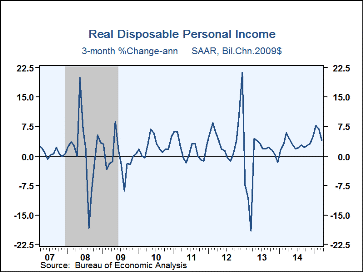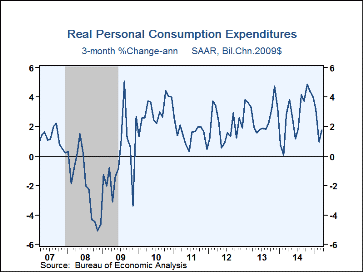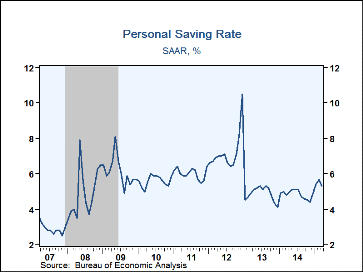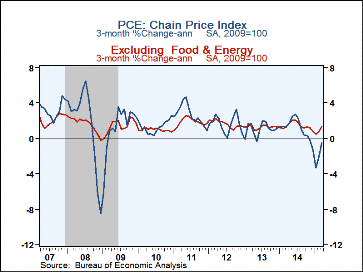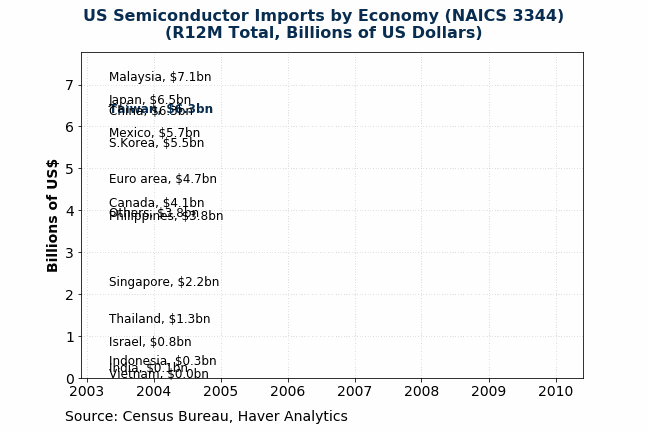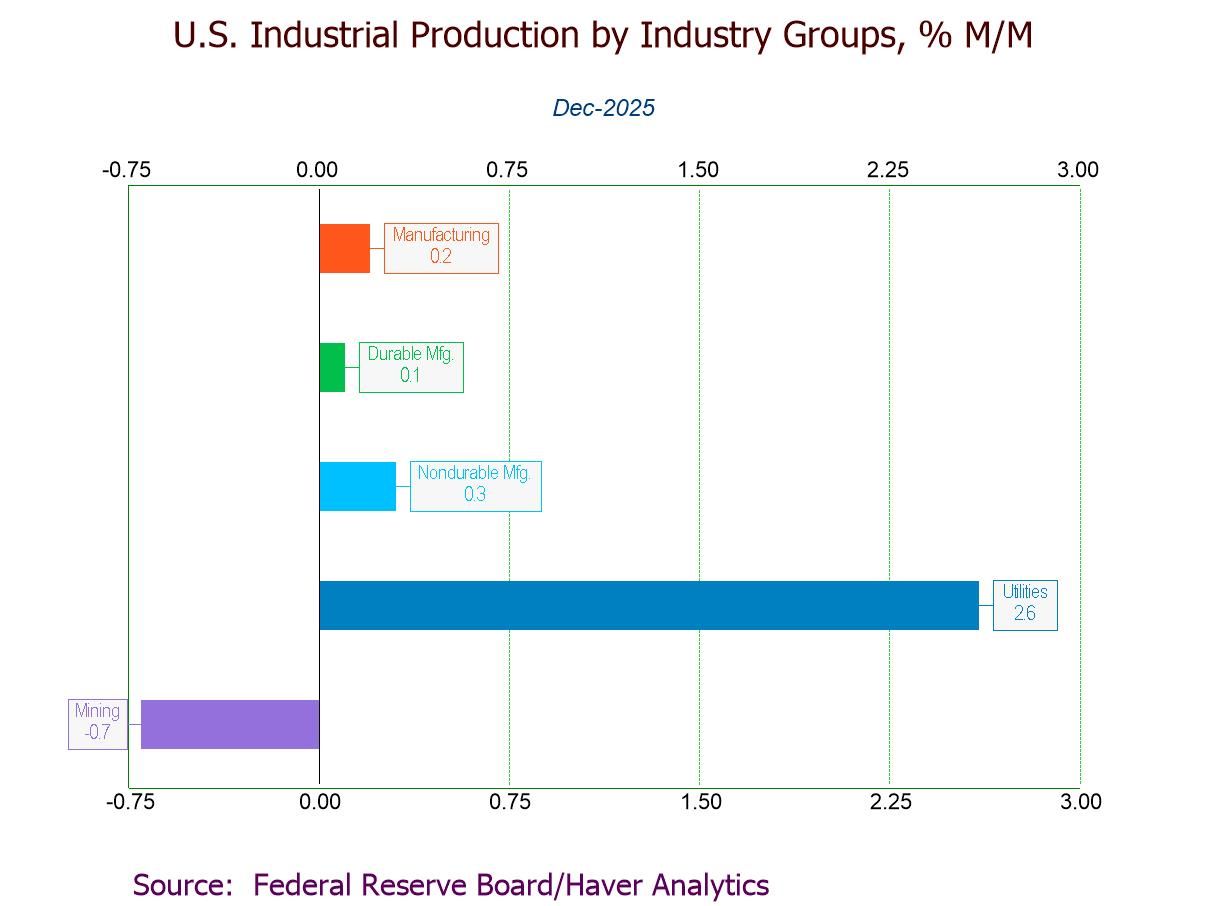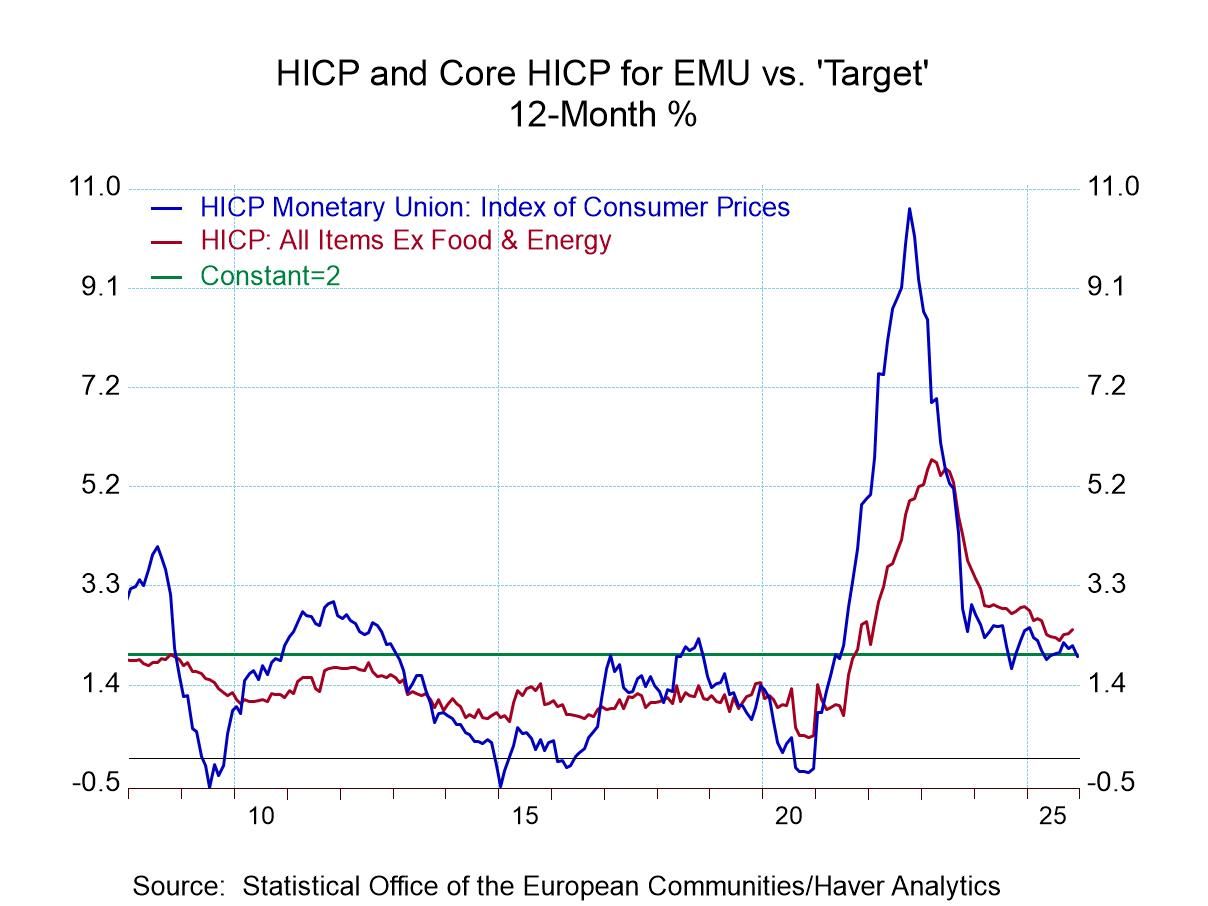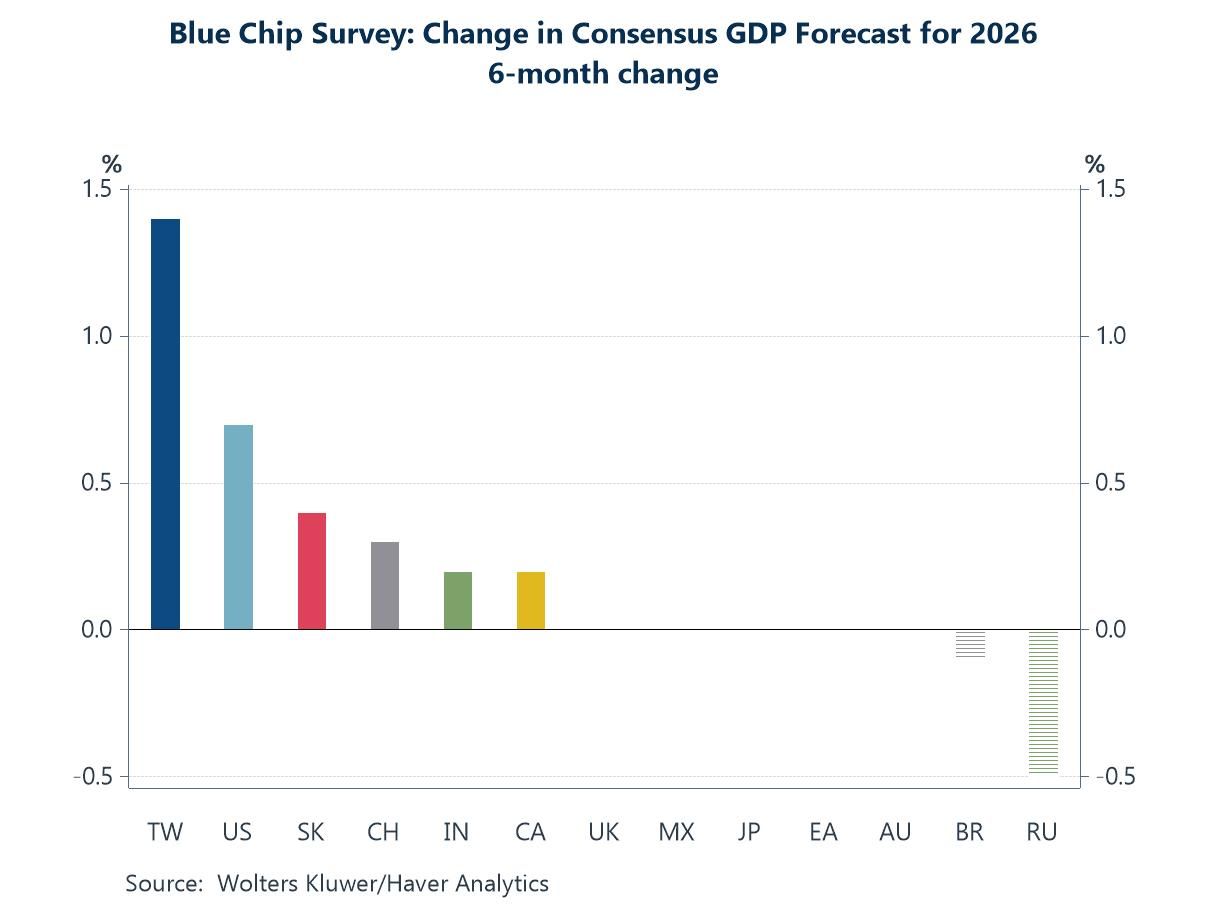 Global| Apr 30 2015
Global| Apr 30 2015U.S. Personal Spending Growth Improves as Savings are Drawn Down
by:Tom Moeller
|in:Economy in Brief
Summary
Personal consumption expenditures increased 0.4% (3.0% y/y) during March following a 0.2% February gain, revised from 0.1%. The rise matched expectations in the Consensus Economics Forecast Survey. Adjusted for price inflation, [...]
Personal consumption expenditures increased 0.4% (3.0% y/y) during March following a 0.2% February gain, revised from 0.1%. The rise matched expectations in the Consensus Economics Forecast Survey.
Adjusted for price inflation, personal spending rose 0.3% (2.7% y/y) following little change during February. Motor vehicles and parts purchases jumped 4.0% last month (3.5% y/y) following a 2.8% decline. Furnishings & appliance spending recovered 0.8% (5.5% y/y) after a 0.7% drop. Recreational goods & vehicles purchases jumped 0.9% (9.2% y/y. Apparel purchases improved 0.2% (2.1% y/y) following three consecutive months of decline. Real services purchases remained unchanged (2.5% y/y) after a 0.2% rise. Spending on restaurants and hotels improved 0.3% (3.9% y/y).
Personal income remained unchanged last month (3.8% y/y) after an unrevised 0.4% increase. Expectations had been for a 0.3% rise. Wages & salaries improved 0.2% (3.8% y/y) following a 0.3% rise. Transfer payments firmed 0.7% (5.9% y/y) as Medicaid payments surged another 1.3% (11.8% y/y), roughly the same as during the prior two months. Rental income increased 0.5% (6.0% y/y) after a 0.4% rise but proprietors income slipped 0.1% (+2.6% y/y), the fourth decline in five months. Dividend income fell 2.9% (+7.4% y/y), the first decline since January 2014; interest income declined 0.5% for the third straight month (-1.6% y/y).
Disposable income remained unchanged (3.6% y/y) after a 0.5% jump. Real disposable income declined 0.2% (+3.3% y/y) after a 0.3% rise.
Last month's strength in spending coupled with no change in income lowered the personal savings rate to 5.3%. Nevertheless, the savings rate during last quarter averaged 5.5%, reaching its highest level since Q4 2012. Personal saving rose 12.9% during the last twelve months.
The 0.2% increase (0.3% y/y) in the chain price index followed a like increase during February. Energy prices jumped 1.5% (-18.5% y/y) as gasoline prices gained 3.9% (-27.0% y/y). Food prices fell 0.3% (+1.8% y/y). Durable goods prices fell 0.2% (-2.4% y/y) while nondurable goods prices rose 0.4% (-2.8% y/y). Services prices ticked 0.1% higher (1.8% y/y) for the fourth straight month. The price index excluding food & energy edged up 0.1% (1.2% y/y), about the same as during the last nine months.
The personal income & consumption figures are available in Haver's USECON database with detail in the USNA database. The consensus expectation figures are in the AS1REPNA database.
| Personal Income & Outlays (%) | Mar | Feb | Jan | Y/Y | 2014 | 2013 | 2012 |
|---|---|---|---|---|---|---|---|
| Personal Income | 0.0 | 0.4 | 0.3 | 3.8 | 4.0 | 2.0 | 5.2 |
| Wages & Salaries | 0.2 | 0.3 | 0.6 | 3.8 | 4.5 | 2.8 | 4.5 |
| Disposable Personal Income | 0.0 | 0.5 | 0.4 | 3.6 | 3.8 | 1.0 | 4.9 |
| Personal Consumption Expenditures | 0.4 | 0.2 | -0.3 | 3.0 | 3.9 | 3.6 | 3.7 |
| Personal Saving Rate | 5.3 | 5.7 | 5.4 | 4.8 (Mar '14) |
4.9 | 4.9 | 7.2 |
| PCE Chain Price Index | 0.2 | 0.2 | -0.5 | 0.3 | 1.3 | 1.2 | 1.8 |
| Less Food & Energy | 0.1 | 0.1 | 0.1 | 1.3 | 1.4 | 1.3 | 1.8 |
| Real Disposable Income | -0.2 | 0.3 | 0.8 | 3.3 | 2.5 | -0.2 | 3.0 |
| Real Personal Consumption Expenditures | 0.3 | -0.0 | 0.2 | 2.7 | 2.5 | 2.4 | 1.8 |
Tom Moeller
AuthorMore in Author Profile »Prior to joining Haver Analytics in 2000, Mr. Moeller worked as the Economist at Chancellor Capital Management from 1985 to 1999. There, he developed comprehensive economic forecasts and interpreted economic data for equity and fixed income portfolio managers. Also at Chancellor, Mr. Moeller worked as an equity analyst and was responsible for researching and rating companies in the economically sensitive automobile and housing industries for investment in Chancellor’s equity portfolio. Prior to joining Chancellor, Mr. Moeller was an Economist at Citibank from 1979 to 1984. He also analyzed pricing behavior in the metals industry for the Council on Wage and Price Stability in Washington, D.C. In 1999, Mr. Moeller received the award for most accurate forecast from the Forecasters' Club of New York. From 1990 to 1992 he was President of the New York Association for Business Economists. Mr. Moeller earned an M.B.A. in Finance from Fordham University, where he graduated in 1987. He holds a Bachelor of Arts in Economics from George Washington University.


